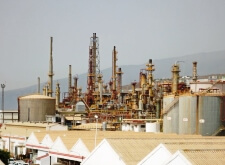 It has certainly been a strange few months in the global energy markets.
It has certainly been a strange few months in the global energy markets.
With all the indicators suggesting prices should be rising – uncertainty in unstable markets, the Russia Ukraine conflict, a falling oil price raising the spectre of OPEC driven curtailment of supply and a winter capacity constraint the level of which has been unseen for many years, we really should be facing up to a period of energy price inflation.
However that is not the case.
With winter 2014/15 gas and electricity prices falling, and still significantly below 2013 levels, the market is signalling a very different outcome from the one most predictions expected.
Now, a report by the UK Energy Research Centre has raised the prospect of a “long term” downward pressure on the price of gas saying:
“By the early 2020s there might be an oversupply of LNG and in such circumstances the UK is well placed to attract increased supplies”
LNG (liquefied natural gas) is a readily tradable and crucially importable fuel supply.
Stability
With stable Qatar as a major producer and shipping resources the delivery conduit, energy dependent nations, not least the UK, have been rushing to build terminals to facilitate receipt of the supplies and exploitation of ‘cheap’ gas.
This is good news for the Qatari economy but it is also increasingly positive for UK gas consumers.
Professor Michael Bradshaw, the study’s co-author claimed:
“There is no reason to just have a scenario where gas prices go up. There is no shortage of gas [globally].”
Indeed, such is the influence of the transportable and stable supply of LNG that the economics of the growth in the market could force Russia’s Gazprom, the dominant gas supplier to European countries to reduce the costs of its piped natural gas.
The prospect of such an economic shift has been heightened by the shale boom in the US, not only to date has that led to an abundance of coal imports, as US users switched to shale reserves, but now those reserves are so full that the US is readily building and converting terminals to transform shale gas into LNG ready to export across the globe
Bradshaw welcomed the potential impact such market dynamics could have as long as the UK put itself in a position to exploit the opportunity, with the report saying.
“Switching to burning more gas in power stations will help Britain meet its climate change targets because it has half the emissions of coal”
However the report cautioned that any thoughts of an indigenous ‘fracking’ boom and the prospects for the UKs own shale gas revolution were not on the cards and instead our best hope was to exploit the import opportunities available to us:
“Any talk of shale gas making the UK self-sufficient [in gas] again, let alone allowing significant exports, is far-fetched”.
The prospect of (relatively) cheap gas from stable regimes in geo-politically benign regions is manna from heaven for European governments, not least the UK, whether the opportunity is grasped however remains to be seen.
For now though the falling energy prices make long term fixed priced energy deals ever more compelling for UK businesses.
